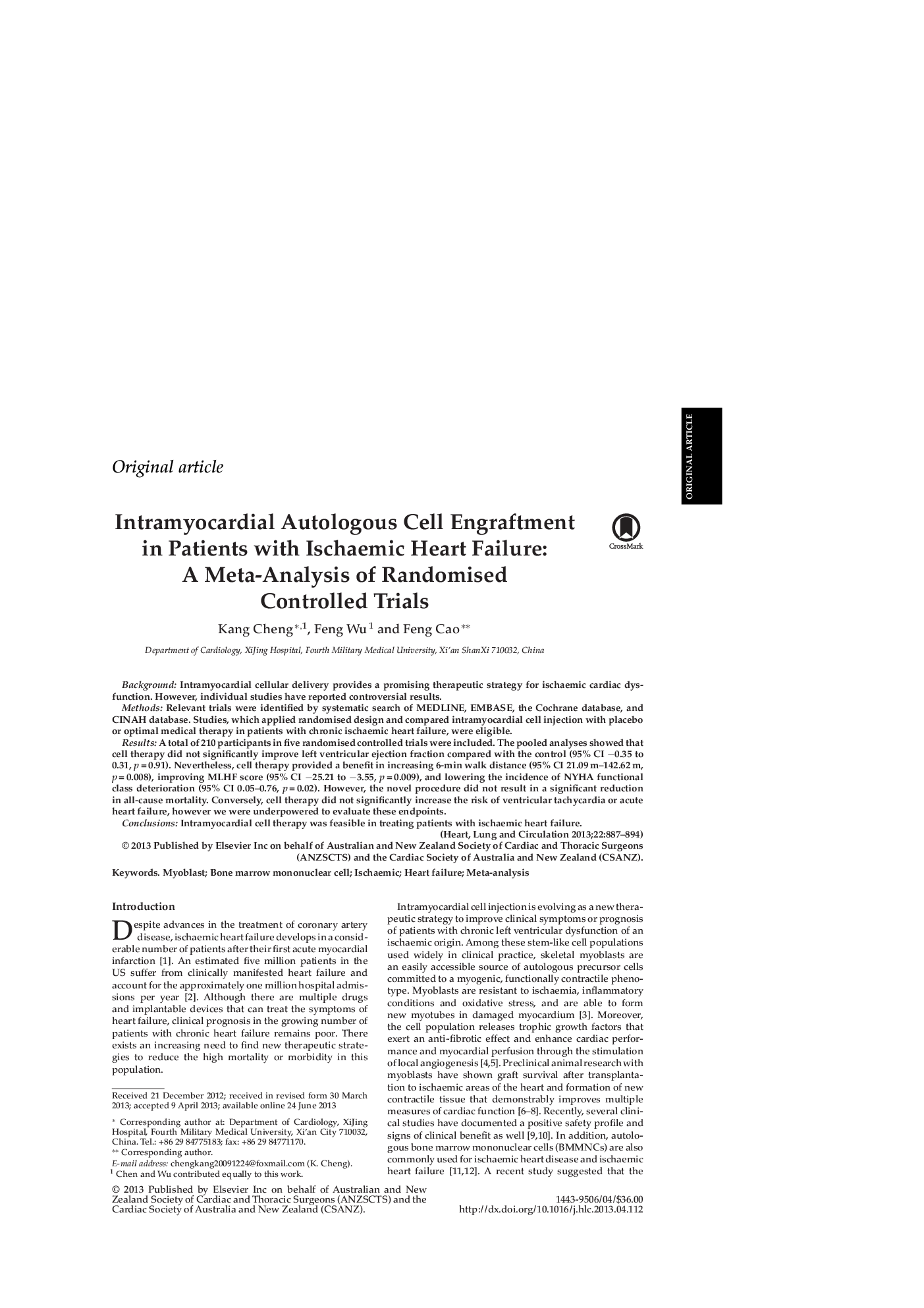| Article ID | Journal | Published Year | Pages | File Type |
|---|---|---|---|---|
| 2917459 | Heart, Lung and Circulation | 2013 | 8 Pages |
BackgroundIntramyocardial cellular delivery provides a promising therapeutic strategy for ischaemic cardiac dysfunction. However, individual studies have reported controversial results.MethodsRelevant trials were identified by systematic search of MEDLINE, EMBASE, the Cochrane database, and CINAH database. Studies, which applied randomised design and compared intramyocardial cell injection with placebo or optimal medical therapy in patients with chronic ischaemic heart failure, were eligible.ResultsA total of 210 participants in five randomised controlled trials were included. The pooled analyses showed that cell therapy did not significantly improve left ventricular ejection fraction compared with the control (95% CI −0.35 to 0.31, p = 0.91). Nevertheless, cell therapy provided a benefit in increasing 6-min walk distance (95% CI 21.09 m–142.62 m, p = 0.008), improving MLHF score (95% CI −25.21 to −3.55, p = 0.009), and lowering the incidence of NYHA functional class deterioration (95% CI 0.05–0.76, p = 0.02). However, the novel procedure did not result in a significant reduction in all-cause mortality. Conversely, cell therapy did not significantly increase the risk of ventricular tachycardia or acute heart failure, however we were underpowered to evaluate these endpoints.ConclusionsIntramyocardial cell therapy was feasible in treating patients with ischaemic heart failure.
